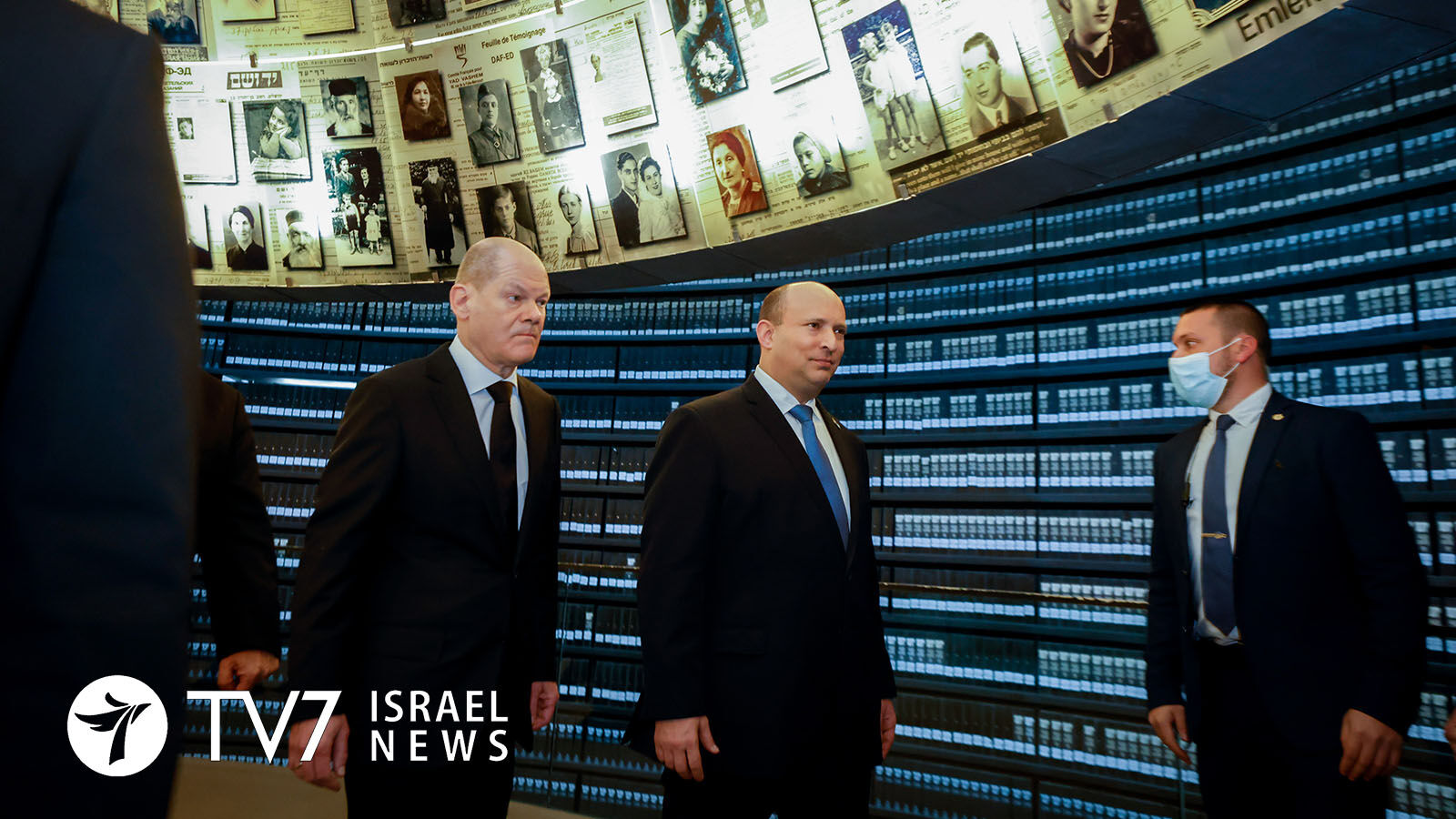Berlin and Jerusalem announced the creation of a new bilateral strategic cooperation agreement in the format of a bi-annual dialogue on security and diplomatic matters, said Israeli Prime Minister Naftali Bennett after talks with German Chancellor Olaf Scholz.
By Erin Viner
The visit the Scholz’ first to Israel since taking office as leader of the Federal Republic of Germany last December, and came suddenly without the usual advance notice. German Foreign Minister Annalena Baerbock also came to Israel for meetings with top Israeli leaders on regional issues last month.
At a joint press conference in Jerusalem this afternoon, Prime Minister Bennett said the new pact marks “a significant upgrade in our relations.”
The bilateral friendship has “come a long way” since being founded by then-Israeli Prime Minister David Ben-Gurion and the Chancellor of West Germany Konrad Adenauer in the early 1950s, said Bennett, underscoring that today the “steadfast” relations were ‘deepened and expanded.’
Remarking that the German leader’s visit comes at “a very fateful and sensitive time,” the Israeli Premier said the two held a lengthy discussion on the situation in Ukraine.
“Our obligation as leaders is to do our utmost to stop the bloodshed, to bring what is going on from the battlefield to the negotiating table as quickly as possible; it is still not too late,” he said, adding that to his regret, “we in Israel have experience with wars. Their price is great as we have already seen. Unfortunately, it could get much worse.”
Reaffirmed that, “The State of Israel stands alongside the people of Ukraine,” Prime Minister Bennett said that in addition to the “considerable humanitarian assistance – three planes with 100 tons of equipment, mostly medical” that “we are determined to continue and even do more.”
Turning to Iran and its ongoing talks in Vienna with world powers – including Germany – aimed at reviving the 2015 Joint Comprehensive Plan of Action, Bennett reiterated that his government is “charged with the responsibility of making sure that Iran will have neither nuclear weapons nor the possibility of attaining them, not on our watch, not ever.”
After noting that Jerusalem is “closely monitoring the talks in Vienna – including the possibility that an agreement will be signed that allows Iran to install centrifuges on a broad scale within a few years” due to a ‘sunset clause’ in the initial deal, Bennett proclaimed that “This possibility is unacceptable to us.”
He then cautioned that “Israel will know how to defend itself and ensure both its security and its future,” adding that, “We also expect our friends in the world not to countenance a massive installation of centrifuges in another two-and-a-half years, and to already prepare for the day after.” He then called on the German leader to “join hands and work together” to meet enormous challenges in a ‘changing world.’
Jerusalem’s strong bilateral relationship with Berlin was “not a given,” Bennett commented earlier at the start of Chancellor Scholz visit to the Jewish State at the the Yad Vashem World Holocaust Remembrance Center in Jerusalem, which he called “the place that reminds us of the wound that is the basis of relations between Israel and Germany.”
Following a tour and official memorial ceremony at the site, including the Hall of Remembrance and the Children’s Museum, Prime Minister Bennett said, “The Holocaust, the systematic annihilation of Jews, is the wound that forms the basis of ties between Germany and Israel; from this wound we have built significant and steadfast relations.”
where she received a tour following by a wreath laying ceremony at the Hall of Remembrance in commemoration of the 6 million brothers and sisters – men, women and children” who were murdered by the Nazis during World War Two.
Stressing that “even today, 80 years after the war, there is no Jew who does not carry within him the memory of his six million in the camps,” Bennett stressed that, “Even today, in a strong and prosperous state, a state of warmth and happiness, in each one of us, even several generations later, there is deep sadness that does not disappear.”
The Israeli leader then thanked Chancellor Scholtz for visiting Israel, as well as his “commitment to the memory of the Holocaust and to the Jewish People.”
